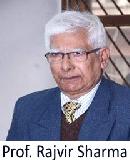 The decision of some of the Opposition parties to field former Speaker Meira Kumar as candidate against the NDA presidential nominee Ram NathKovind has brought into focus the question whether it is necessary to make the elections contestable every time? Rationally speaking, the question seems odd and irrelevant in a democratic system.
The decision of some of the Opposition parties to field former Speaker Meira Kumar as candidate against the NDA presidential nominee Ram NathKovind has brought into focus the question whether it is necessary to make the elections contestable every time? Rationally speaking, the question seems odd and irrelevant in a democratic system.
Election, after all, is the most important ingredient of democracy and electoral contest is the way to provide opportunity to the electors to make a choice of the best candidate. Even then, the question is important for the simple reason that the highest executive authority of India was made to be elected indirectly by an electoral college consisting of the elected members of Parliament and state legislative Assemblies.
This provision was made under the constitution after a serious discussion on various modes of electing the President of India. The choice of indirect election was justified on the ground that such a system will ensure not only the choice of the best candidate in terms of her/his caliber- educational, social, political and cultural – it was also expected to make him rise above the hustle and bustle of politics.This type of election was supposed to make her/him apolitical while the nation would be saved from the economic burden of a like of general election at the same time.
The incumbent to the office will belong to whole people and political class irrespective of his or her past background. Here it would be pertinent to remember that the earlier elections to the office of the president mostly on partisan lines betrayed the hope of the fathers of the constitution right from the election of the first president to the present one except the one when N Sanjiva Reddy was elected unopposed in 1977.
It is also a truism to say that most of the contests have been more symbolic than real except the contest between N Sanjiva Reddy and VV Giri in 1969.
Furthermore, there are consultations between the ruling and opposition parties, real or formal, over the choice of the presidential candidate. What does this consultative initiative underscore? It underlines the need for keeping the office of the president above party politics and to elect a person of vision, dignity, commitment to the people and the constitution of India.
S/he should be kept above controversies if the candidate has not been a part of any serious and questionable conduct at the time of being made to contest the election to this office of the constitutional head of the state or even in the past. It can also be justified on the part of the opposition to contest the election if the candidate nominated by the majority party or majority coalition, and the consensus becomes difficult to achieve, shows in words or deeds that s/he would toe the line of the party in preference to the rule book.
The contest in case of late Gianizail Singh who said that he would gladly broom if asked to do so by the then Prime MinisterIndira Gandhi. Such expression not only spoke about his rigid political bias and loyalty to the person but also a possible lack of commitment to the constitution. In other words, no candidate with a compromising bent of mind should be chosen for the post can be acceptable argument to force an election to the office.
Similarly, it is difficult to digest that even the election to the presidential office is taken to the level of caste, community or religion which has become a normal feature of party politics and electoral arena in India in the post-Independence period. Statements of the leaders like Mayawati that she would not support Ram NathKovind only in case the non-NDA parties select a Dalit candidate is a pointer in that direction. For god sake do not drag the office of the president into a divisive politics of Dalit vsnon Dalit. Similarly, the opposition is trying to send a message openly, as said by Yechury and Congress leaders, that they want not to let Kovind elected unopposed for the sake of ideology.
This again is an uncharitable argument if we believe the framers of the Constitution who were emphatic that the occupant of the RashtrapatiBhavan would not only be non-partisan in theory but shall also be so in practice. In addition, he can command the confidence and respect of all the sections of the society and politics only if he maintains apolitical image by his unbiased conduct in office.
It is imperative, therefore, that a wo/man of high integrity, honesty, impartiality and objectivity is elevated to the seat of the President. The candidate should be one who is conversant with the ethos and culture of India. He should be one who knows the pulse of the people of both India and Bharat. Ram NathKovind is the person who combines in him all the good qualities expected of a good president.
Not only he is the owner of impressive personality, he has a long experience of social service, of political nuances and commands a deeper understanding of the constitution. He is open, transparent and accessible to even the commoners of India. Everyone can find his reflection in his thought and action. Let ideological fights be left to the time of parliamentary or assembly elections. Let this be the beginning of a new chapter by shunning parochialism in the personal and political behavior when it comes to choosing the presidential incumbent.
(Author is Senior Consultant, IGNOU)